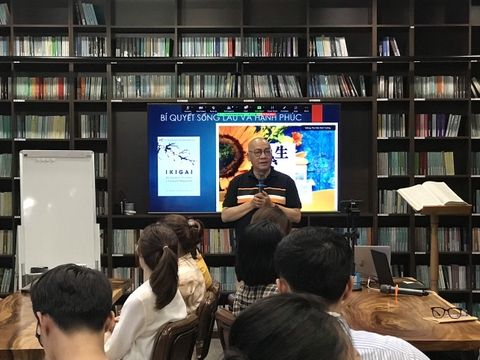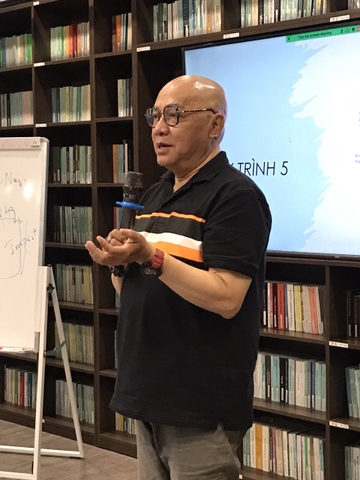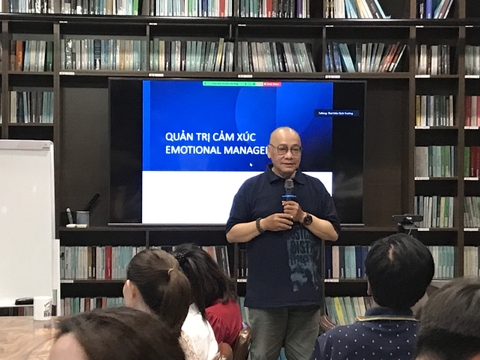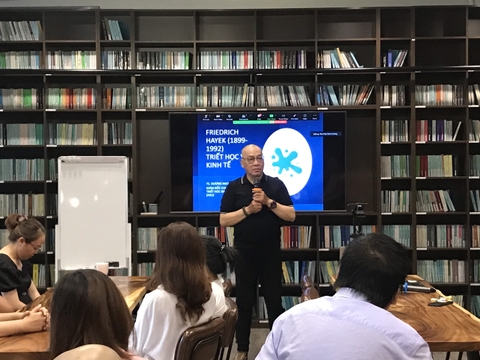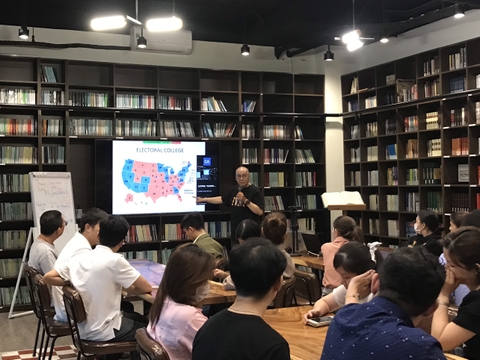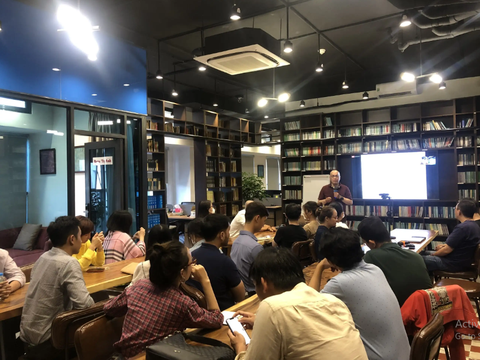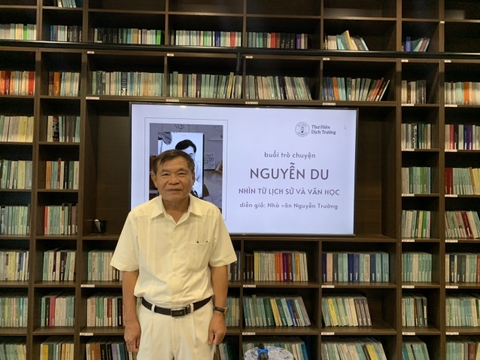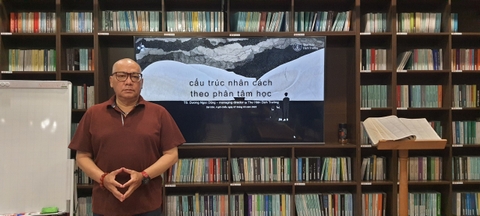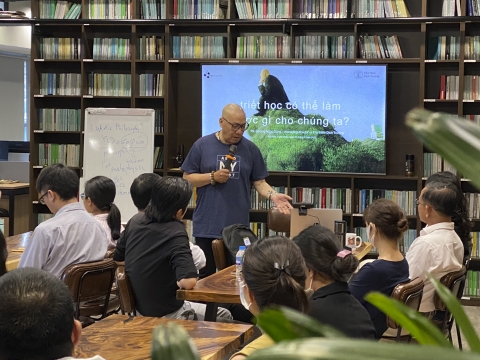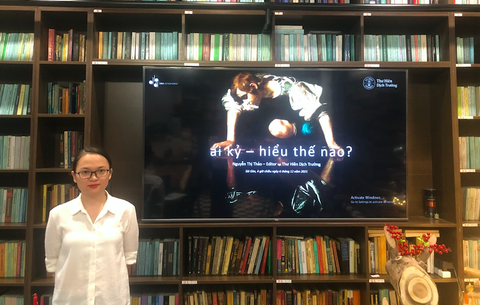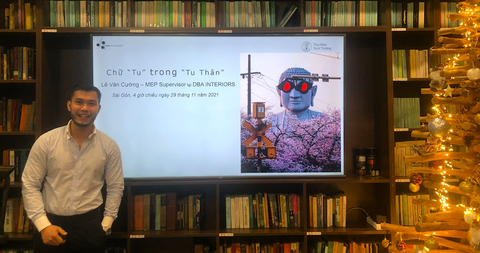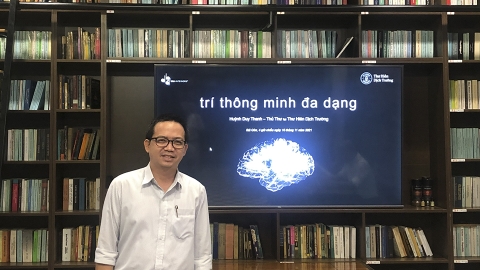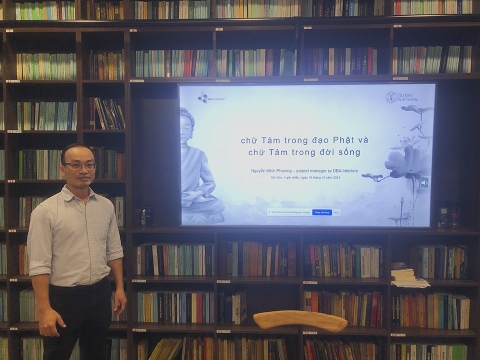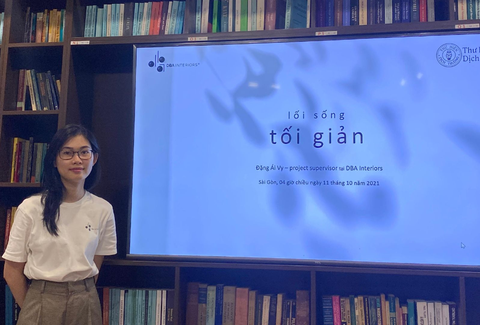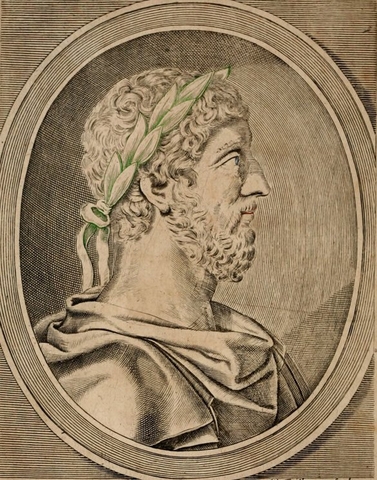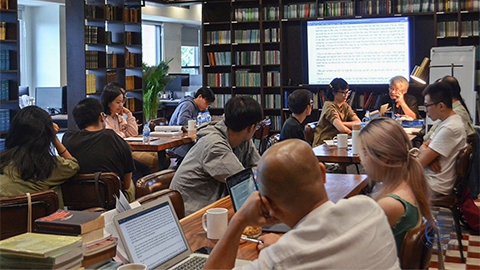INTERNAL TALK 22 - JEAN-PAUL SARTRE'S EXISTENTIALISM - ĐINH HỒNG PHÚC - Feb 14, 2022
22/
02/
2022
Existentialism began in mid-to-late 19th Century and flourished in the mid-20th Century in the years after World War II. Besides philosophy, it has had a strong influence on many other areas such as theology, art, literature, and psychology. Jean-Paul Sartre, a French philosopher, playwright, novelist, and political activist, is one of the biggest names to contribute to a solid theoretical system for this distinct philosophy.
Jean-Paul Sartre's existentialism is very broad because his ideological progress has many turning points. While in Berlin studying Husserl's Phenomenology in 1934 -1935, he wrote Transcendental Ego. In 1943, he completed the next 10 years of research with his famous work Being and Nothingness. He then switched from Phenomenology to Marxism. Jean-Paul Sartre was not only a Existentialist but also a Marxist. In 1945, his transition from Phenomenology to Marxism was evident in the text Existentialism is a Humanism. In 1960, he published a 2-volume text of Critique of Dialectical Reason. Then he took part in political activities and began writing articles about political economy.
Basically, the central theme of Sartre's exlistentialism has always been "existential" and "human." Sartre argues that there are basically two types of existence. The first is being-in-itself (l'en-soi), which is described as fixed, complete, and there's no reason for it at all - it's just that. This is basically the same as the world of external objects. The second is being-for-itself (le pour-soi), which depends on the old for its existence. It has no absolute, fixed, eternal nature and corresponds to human consciousness. So, human existence is characterized by “nothingness” - whatever we claim to be part of human life is our own creation, often through the process of rebelling against external constraints. This is the condition of mankind: absolute freedom in the world. Sartre used the famous phrase “existence precedes essence” to explain this idea, a reversal of traditional metaphysics and an idea of the nature of reality. Sartre's existentialism appreciates the need for human freedom and characteristics. With existence, the essence of things is being while that of human is becoming (becoming). Humans never rest, never “be” but go beyond “be,” creating values rather than living in obedience to values, there is no “A fox may grow gray, but never good.” Man has always had the transcendence - a “becoming” - a projection into the future. To project ourselves into the future, we have to make a choice. As an existent, we are free to choose, contemplating ourselves in possibilities and it is the act of making that choice that presupposes that our existence itself is not something already determined, but free (the freedom in the sense of human structure, not in a political sense - not a thing someone gives us. And there's no excuse for our choices. We were not born a coward, not a sinful or sinless man, but it bases on my own actions. The more we are free, the larger responsibility we have, absolute freedom brings about absolute responsibility. Who you are depends on how you exist. It is impossible to blame the situation in the name of something to justify, because it is false, or self-deception, which is an inauthentic lifestyle, forgetting that you are the subject of the meaning of life. This is Sartre's very fundamental notion of responsibility.
Although Sartre's philosophy of existentialism featured individualism, it should be emphasized that the individual is in a network, exists with others, cannot be separated from it, and that man is responsible for his actions, even if it is for no reason. Any action will have certain consequences because it will be in association with other existents when it is performed. For example, an unprovoked act such as throwing a knife through a dark window without knowing someone being outside but eventually that person dies. Therefore, it is necessary to reflect on our behavior as members of the community, and we should not just exist in our own separate world, but co-habit with others. Sartre's existentialism does not mean self-indulgence as some criticizes, but in fact it is simultaneously linked to freedom and responsibility. “Existentialism is a Humanism.”





